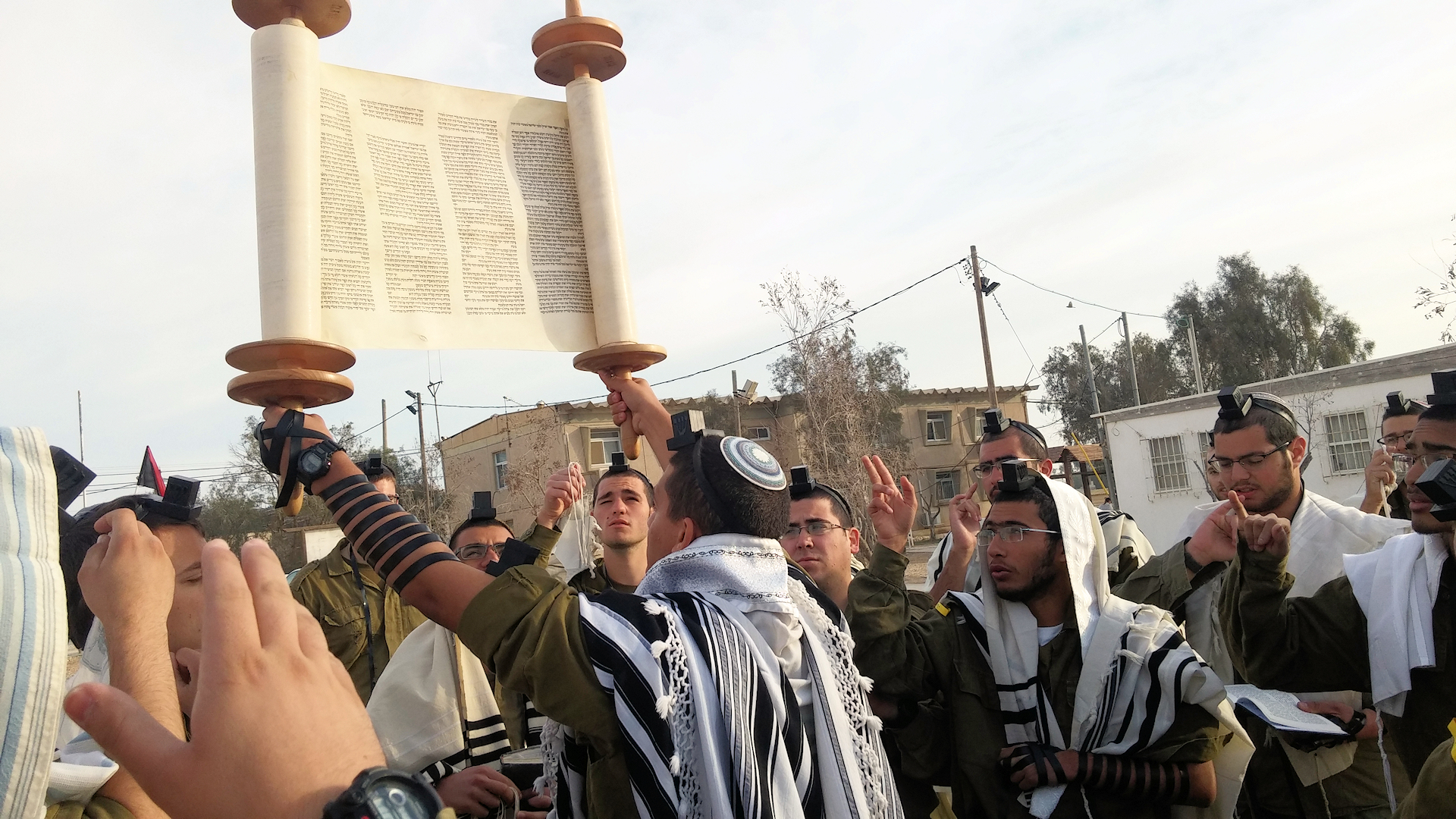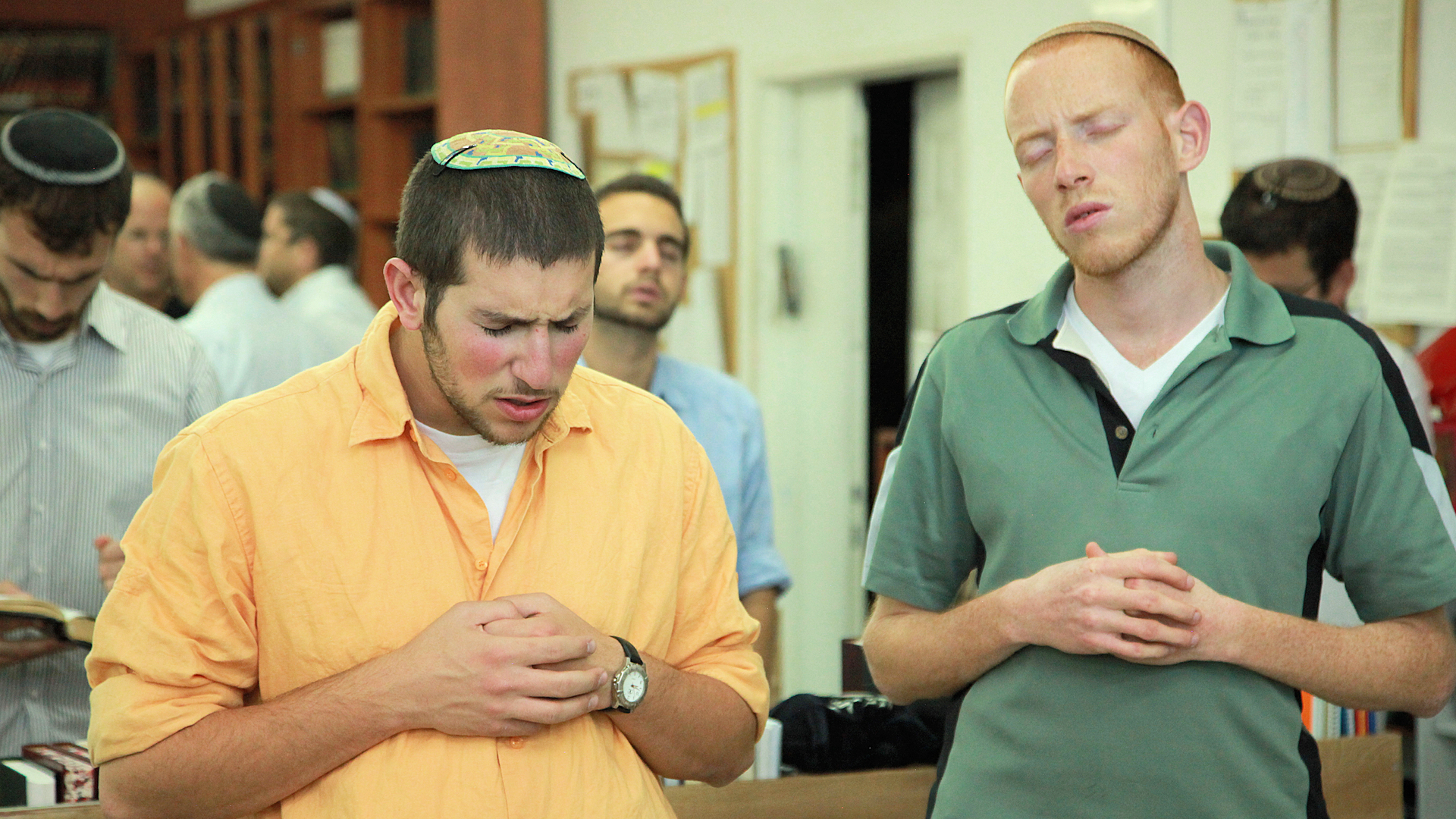Complete defeat, victory, and the blowing of the trumpets
Parshah and its realization - Parshat Bea’alotcha - and the war of the 'Iron Swords' 5784
Rabbi Eliezer Haim Shenvald
In loving memory of and לע''נ Channah L. Wortzman – חנה לאה בת משה וורצמן ז'ל - whose yahrtzeit is observed on 17 Sivan.
And with prayers for the success of the IDF soldiers so that no harm befalls them, for the healing of all the wounded, and the return of the abducted.
On Sunday, we escorted Major General Alon Weiss, HY’D who fell in Gaza, on his last journey. Alon was my subordinate about thirty years ago and continued volunteering as a fighter in the Armored Corps even when he was approaching fifty, with seven children and one granddaughter. At his heart-wrenching funeral, the sharp message echoed: the sacrifice, heroism, and wonderful volunteering, which comes at such a heavy price, must not be in vain.
In recent days, we have heard familiar slogans from the past: "There is no problem stopping the fighting in Gaza for a few years, in the meantime, we will get organized", and "If we want, we can always return and complete the battle". And of course, "if there are attacks from Gaza, we will respond with all severity!". We have already heard sayings during the Oslo Accords, the withdrawal from Lebanon, the disengagement, and the countless 'rounds' since then. Of course, none of these ever came true, and they led us over the years to the IDF's loss of deterrence and the Simchat Torah disaster.
But there is something very serious about these statements. Those saying them should understand what it would mean to ‘stop’ the war now, without achieving its defined goals: destroying Hamas’ infrastructure, returning the hostages, and preventing the possibility of a future threat from Gaza. It would only mean, defeat in the war with Hamas! The IDF did not live up to its mandatory security doctrine: "to move the war into the enemy's territory as quickly as possible to defeat them there quickly."
Defeat could have serious consequences in several circles:
The recurrence of the attacks on Israel as in Simchat Torah in additional areas.
The IDF’s loss of capability and deterrence - from being perceived as one of the world’s best and victorious armies, to a weakened army that is unable to defeat even a small terrorist organization with few means of combat like Hamas. The smallest and weakest of all of Iran's metastases. IDF can no longer save Israel's existence.
Existential risk - Iran, which set the goal of destroying Israel by 2040, may conclude that the IDF's weakness can be used to accelerate the process.
The future of the Gaza Envelope – if Hamas is not dissolved, the residents of the Gaza Envelope will not be able to return to their settlements.
And above all, it will make the citizens and fighters sacrifice, all those who gave their lives and bodies for absolute victory – to be in vain, and the soldiers and the entire nation will lose their trust in the IDF.
In our Parasha we learn another chapter of the Torah’s “theory of combat”:
וְכִי תָבֹאוּ מִלְחָמָה בְּאַרְצְכֶם עַל הַצַּר הַצֹּרֵר אֶתְכֶם וַהֲרֵעֹתֶם בַּחֲצֹצְרֹת וְנִזְכַּרְתֶּם לִפְנֵי ה' אֱלֹקיכֶם וְנוֹשַׁעְתֶּם מֵאֹיְבֵיכֶם.
"When you go to war in your land against the adversary who oppresses you, then you shall sound an alarm with the trumpets. Then you will be remembered before Hashem your G-d, and you will be saved from your enemies". (Bamidbar 10:9)
"מדובר בלא ספק במלחמת הגנה הכפויה על ישראל בלא התגרות מצידם. שהרי נאמר שהאויב הוא בארצכם. אין זו מלחמת כיבוש מחוץ לגבולות הארץ, אלא האויב הוא בארץ. הוא פלש ומיצר לכם בארצכם. הוא הצר הצורר אתכם, ואתם שרויים בצרה. במצב זה של מצוקה תקיימו 'והרעותם בחצוצרות'. מטרת התרועה בחצוצרות היא: 'ונזכרתם' וגו' 'ונושעתם'; וכו'"
"This is undoubtedly regarding a defensive war forced on Israel without provocation on their part. After all, it is said that the enemy is in your land. This is not a war of conquest outside the borders of the country, but the enemy is in the land. He has invaded and is making trouble for you in your land. He is your enemy, and you are in trouble. In this distress situation, “you shall sound an alarm with the trumpets”. The purpose of this trumpeting is: “you will be remembered' and “you will be saved….etc.” (Rabbi Samson Raphael Hirsch ibid, view Talmudic encyclopedia re. trumpets in times of war)
According to this, the Mitzvah of blowing the trumpets during war should be part of our prayers –
וכן אנחנו מצווים לתקוע בחצוצרות בעתות הצורך והצרות כשנזעק לפני השם
“We are commanded to blow with trumpets at times of need and of distress, when we yell out in front of G-d” (Rambam - Sefer HaMitzvot - Positive Commandments 59). However, some believe that it is one of the means to deter and intimidate the enemies (Radak), or to defeat them (Ramban).
Also in this chapter, the Torah emphasizes that the goal of fighting must be the pursuit of 'defeat' and 'total victory': "and you will be saved from your enemies" - that the precise explanation for the word salvation is 'complete salvation' which is the difference between 'salvation' and 'rescue', as it is written:
התיצבו וראו את ישועת ה' אשר יעשה לכם היום… אשר ראיתם את מצרים…
…stand by, and witness the deliverance which Hashem will work for you today… (Malbim)
The principle of defeat should guide the war’s conduct at the strategic and tactical levels. In Sun Tzu's words (“The Art of War”), in every war, the purpose should be to reach a "quick and absolute defeat". No intermediate solutions, stopping in the middle, or postponing decisions. These are fundamental as well as moral requirements. Without striving for a defeat, there is no moral justification to pay such a high price; the lives of the soldiers who may fall in battle, the current one, and the one that will inevitably come after (because the lack of decision-making will provoke the next aggression).
It is possible that the blowing of the trumpets before going into battle was also intended to waken the warriors and clarify the purpose and the righteousness of fighting, so that they would push themselves to their maximum to achieve victory:
וּמֵאַחַר שֶׁיִּכָּנֵס בְּקִשְׁרֵי הַמִּלְחָמָה יִשָּׁעֵן עַל מִקְוֵה יִשְׂרָאֵל וּמוֹשִׁיעוֹ בְּעֵת צָרָה וְיֵדַע שֶׁעַל יִחוּד הַשֵּׁם הוּא עוֹשֶׂה מִלְחָמָה וְיָשִׂים נַפְשׁוֹ בְּכַפּוֹ וְלֹא יִירָא וְלֹא יִפְחָד וְלֹא יַחְשֹׁב לֹא בְּאִשְׁתּוֹ וְלֹא בְּבָנָיו אֶלָּא יִמְחֶה זִכְרוֹנָם מִלִּבּוֹ וְיִפָּנֶה מִכָּל דָּבָר לַמִּלְחָמָה ...וְאִם לֹא נִצֵּחַ וְלֹא עָשָׂה מִלְחָמָה בְּכָל לִבּוֹ וּבְכָל נַפְשׁוֹ. הֲרֵי זֶה כְּמִי שֶׁשָּׁפַךְ דְּמֵי הַכּל…
“Once a soldier enters the throes of battle, he should rely on the Hope of Israel and their Savior in times of need. He should realize that he is fighting for the sake of the oneness of G-d's Name. Therefore, he should place his soul in his hand and not show fright or fear. He should not worry about his wife or children. On the contrary, he should wipe their memory from his heart, removing all thoughts from his mind except the war… If he is not valiant, if he does not wage war with all his heart and soul, it is considered as if he shed the blood of the entire people…” (Rambam -Mishneh Torah Kings and Wars 7:15)



